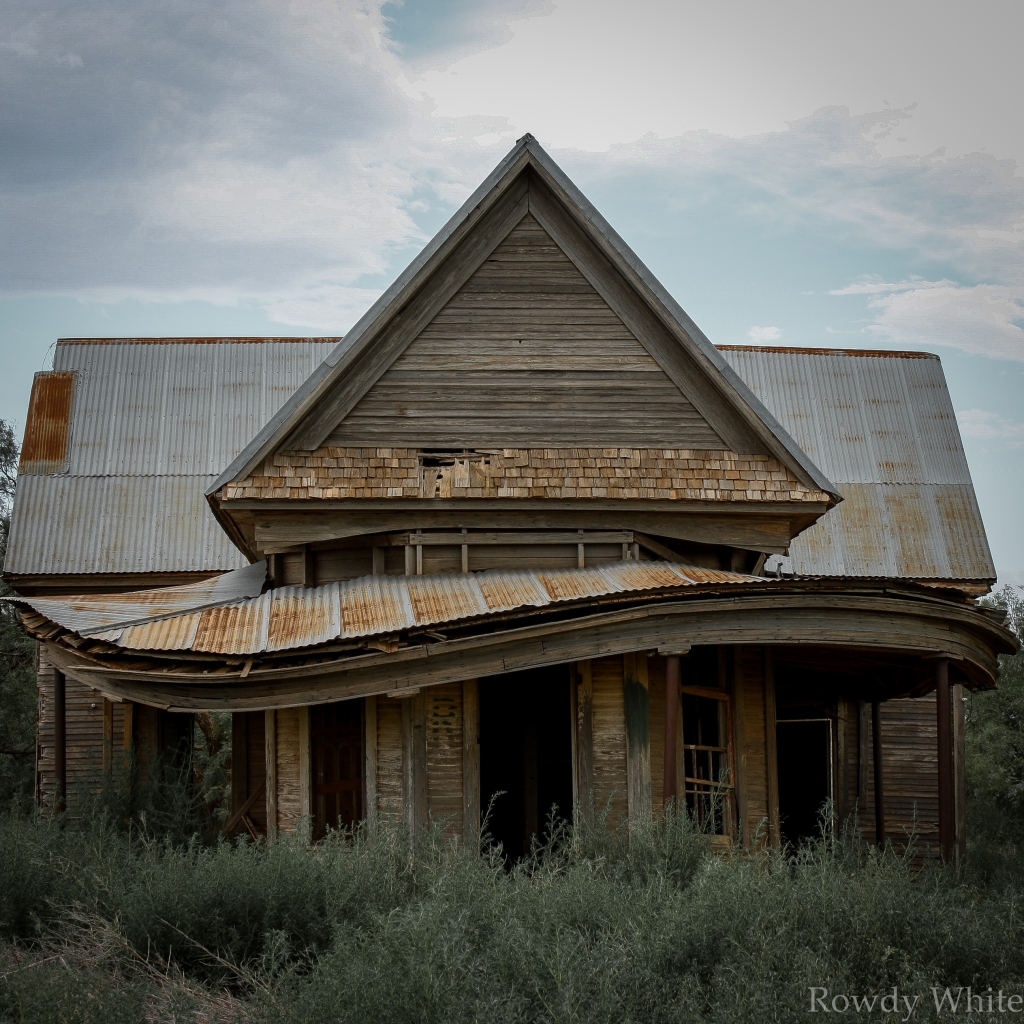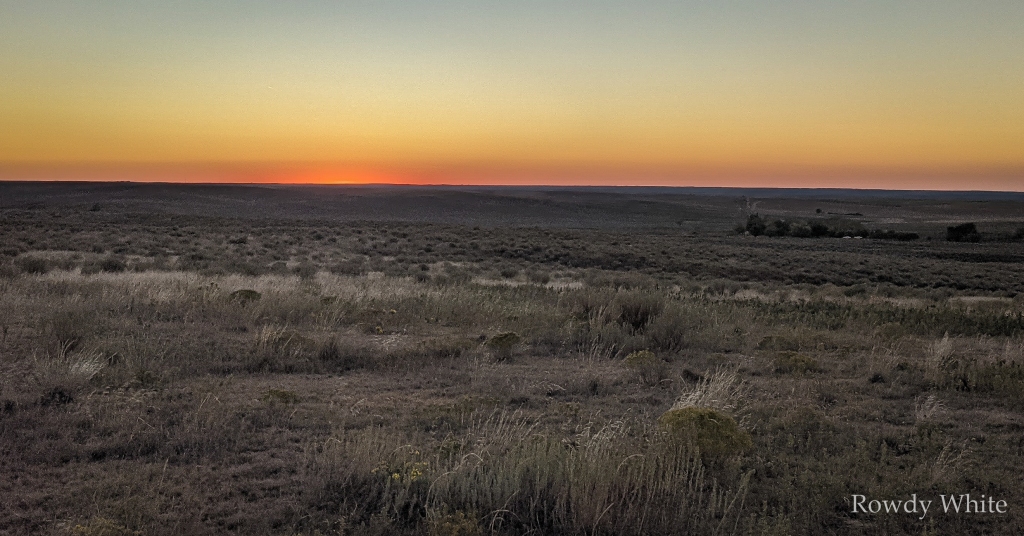The old man ladled stew into a repurposed butter tub. Roughly chopped potatoes, carrots, onion, celery, a cheap cut of meat, salt, pepper, covered with water, it was more a soup than a stew. The old man wasn’t sure why he called it stew, but in his mind the only slightly more than quartered potatoes and chunks of beef made it stew no matter the consistency of the broth. Late summer was too hot for stew, but the old man liked the thin stew he cooked. The trailer house was already hot, and the old man spent most of the day sitting on the back porch, watching a small TV and doodling out plans he would never complete. A couple hours of simmering stew did not make a difference. A big pot of stew also fit his meager fixed income.
The Country Crock tub of stew, a sleeve of saltines, and a Coke went into the cooler the old man kept strapped to the back of his motorcycle . Wedging his reused Styrofoam Allsups cup between the handlebars and windshield, the old man set off to for his nightly trip to eat supper.
Riding on the access road along the interstate, the old man cruised at 50 miles per hour. He was in no hurry to get anywhere, and the idiots on the interstate scared him. As he passed under an overpass he built in the ‘80s, he thought about all the years we worked his dick into the dirt on jobsites across the west. For what? A rundown trailer with a floor that didn’t quite keep the ground out in places? Empty rooms where there should have been at least memories? The summer wind felt like a hair dryer on his leathery skin, and glancing out across the yellow pastures, the old man couldn’t remember the last time it had rained. The weeds sagged in the heat, and the grasses looked like they would crunch underfoot.
The old man pulled into the rest stop just as the sun touched the western horizon, pulling up to the picnic table he sat at most evenings. He unpacked his supper on the side of the table that would allow him to watch the cars and trucks race by on the interstate and to observe the people who stopped at the rest area. It was nice to be able to be around people without being with people. The old man missed sitting at the bar with semi-strangers for hours, creating the man he wished he had been through his semi-factual stories.

He did not ever think about why he started eating his evening meals at the rest area most nights. There were parks and cafes much closer to home, and his table on the back porch was much quieter than the picnic table next to the interstate. It might have been he enjoyed an excuse to get his head into the wind for a while on the motorcycle, but in bad weather, he often drove over to the rest area in his old truck.
Though he didn’t link the two, it may have been the experience of being welcomed home there once. The old man had just pulled into the rest area after dark to pull on a light jacket when another couple of less old, but still older men saw the old man’s Vietnam veteran hat and came over to visit. They talked their old man talk about the weather and motorcycles and eventually one of the strangers asked the old man,
“Has anyone ever welcomed you home?”
At first the old man was confused and replied, “What do you mean?”
“When you got off the plane from Saigon, and since then, has anyone welcomed you home?”
“No, I don’t guess anyone did.”
The less-older-man stuck out his right hand, shook the old man’s hand, and handed him something with his left hand.
“Welcome home, Marine. I know you’ll never forget that place, and we will never forget you.”
The old man looked down at what he had been given, partly to see what it was and to cover his eyes from these strangers with the brim of his hat. It was a Vietnam Veteran pin with an eagle on one side and inscribed with a thank you on the other. The old man couldn’t talk for a moment. When he could, they talked for a few more moments and the less-older men gripped the old man’s shoulder for a moment before riding off into the night. While the old man often thought of that night, he never connected it with why he came there to eat so often.
* * *
The stew was still warm, and though his doctor had warned him about the salt, he used a saltine cracker as one might use a tortilla chip in salsa. Half a sleeve of crackers later, the old man brought the butter tub to his lips and drained off the remaining broth, wiping his mustache with the back of his hand when he was finished. It was still above 90 degrees, but without the sun, the breeze was refreshing to the old man, and the sun warmed concrete of the bench felt good on his ass. He spent a while longer watching the people come and go and watched a couple of king birds and scissor-tailed flycatchers performing dogfighting maneuvers under the sodium-vapor lights to chase bugs.
An old, dented truck pulled into the rest area, dragging three similarly wrecked and beat up cars with tow bars. The old man didn’t understand how it could be legal to tow like that, but he saw it nearly every week. He had heard there was good money being made buying junk cars at auction and dragging them down to Mexico to be fixed and sold. The mescan that got out from the driver’s seat looked legal to the old man, but the passenger had that darker look and dressed in clothes that looked they came out of a Texan’s closet in the 1960s that the old man associated with someone actually from Mexico. Why was Greg Abbott letting them steal good American cars like this, just like they were stealing jobs when the old man was working construction?
Now, the old man thought, they weren’t all bad. He remembered the time in Arizona where he had pulled his bike off the pavement just before dark and had gotten stuck in the sand of Vekol Wash while trying to find a place to camp. The bike was too heavy for him to lift out, and he was not sure how he would get out. In the last dim light of the day, four men carrying knapsacks and grocery bags stepped through the brush and looked as surprised to see the old man as he was to see them. None of them spoke English, but after some gesturing, they helped the old man move his bike to firm ground, and they shared a fire for the night. The next morning the old man gave them what water he had left, and he continued riding west as they walked north.
Though he told that story often, he never thought about how he could never quite square his personal experience with the horrors described to him on talk radio.
***
Finally, as the concrete bench began to get hard on his ass, the old man started thinking about going home for the night. He had enough gas in the tank to leave the interstate and take the farm to market roads back home through the canyon. The cooler air should have already started collecting in the dips of the drainages and would feel deliciously cold as he rode through them. He might stop at those two big old oak trees on the side of the road in Mulberry Canyon and listen to the wind for a while. Besides, there was no hurry to get home. The dogs were fed, and there was no one else waiting there.














